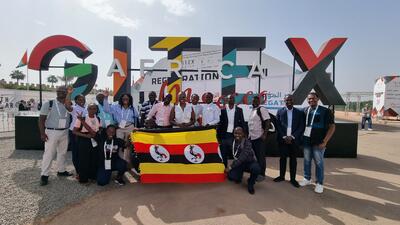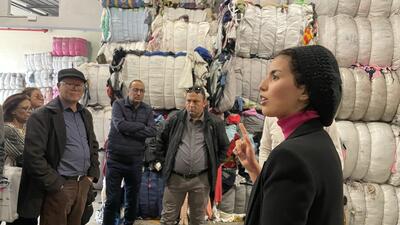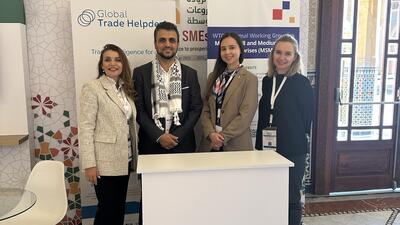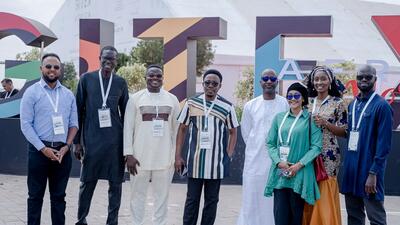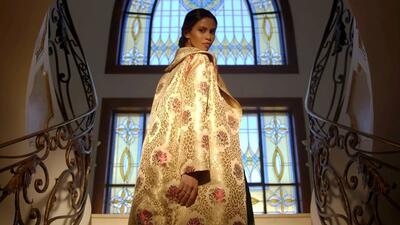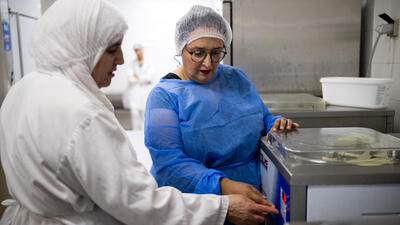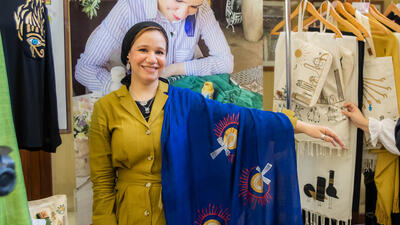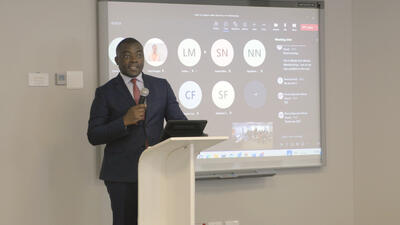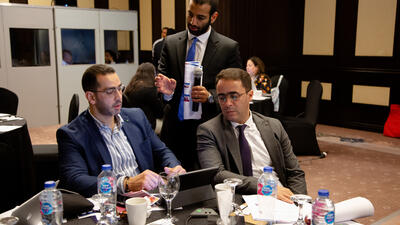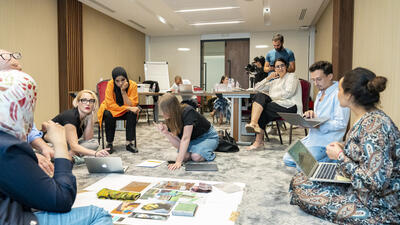
Empowering women entrepreneurs in Morocco through the SheTrades project
Twenty-five small and medium-sized enterprises and cooperatives in Morocco have learned quality management and food safety standards, marketing strategy, and digital marketing, thanks to support from the SheTrades Morocco project.
SheTrades aims to increase the participation of women-owned small and medium-sized enterprises and cooperatives operating in the agri-food sector by improving their competitiveness and strengthening their market linkages.
Fifteen businesses and cooperatives received support for their marketing and promotion plans, while eight were coached, in partnership with Trade Facilitation Office (TFO) of Canada, to optimise their participation in Canada’s trade show Le Salon International de l‘Alimentation (SIAL). They got in touch with nearly 100 Canadian buyers.
Finally, three trade support institutions improved their service portfolios and digitized priority services to better meet the needs of small businesses and cooperatives.
These businesses and cooperatives met in Casablanca on 21 October with representatives of the Moroccan government, the donor community and implementing organisations to share achievements, celebrate results and discuss future directions for this support.
Abdelouahed Rahal, director general of commerce at the Ministry of Industry and Trade, said the SheTrades Morocco project aligns with government efforts to improve the lives of women and their families, to strengthen the role of Moroccan women in the overall development process of the kingdom and to make use of the immense potential of women's enterprises and cooperatives for a sustainable and inclusive economy.
"We are pleased to implement another important initiative in Morocco, on the very important field of women empowerment," said Eng. Hani Salem Sonbol, who heads the International Islamic Trade Finance Corporation, (ITFC).
"The SheTrades initiative contributed to a more inclusive economic growth in Morocco through increased participation of women entrepreneurs in trade. This is why at ITFC, we also focus on making trade work for all, why we rise to the challenge of fostering partnerships that address global economic challenges while simultaneously contributing to the United Nations SDGs."
Lilia Naas, chief of the ITC office for the Middle East and North Africa, added: "I am delighted that we have joined forces with the government of Morocco, the ITFC and several other important players to empower women entrepreneurs in Morocco. This is a key pillar in achieving sustainable and inclusive trade."
"I am proud to hear directly from women leading small businesses how SheTrades has helped them grow their businesses and export and look forward to new opportunities to further reinforce and expand women entrepreneurship in Morocco.”
Launched in September 2020 by the International Trade Centre, the Ministry of Industry and Trade and in collaboration with the Moroccan Agency for Investment and Export Development, the project was funded by the International Islamic Trade Finance Corporation, the Islamic Development Bank and the Trade Facilitation Office of Canada.
About the project
The purpose of the SheTrades Morocco project is to increase the participation of women-owned businesses in trade by improving their competitiveness and strengthening their market linkages. The project seeks to enable Moroccan women to benefit from economic participation focusing on processed foods value chains. Within the framework of the International Trade Centre’s SheTrades Initiative, the project will work with key public and private stakeholders to address issues that are holding back Moroccan women from fulfilling their economic potential.
More competitive enterprises in this key sector will contribute to achieving targets linked to the 2030 Agenda, particularly related to SDG 8 “promoting sustained, inclusive and sustainable economic growth, full and productive employment”, SDG 9 “industry, innovation & infrastructure” and SDG 5 “gender equality”.




